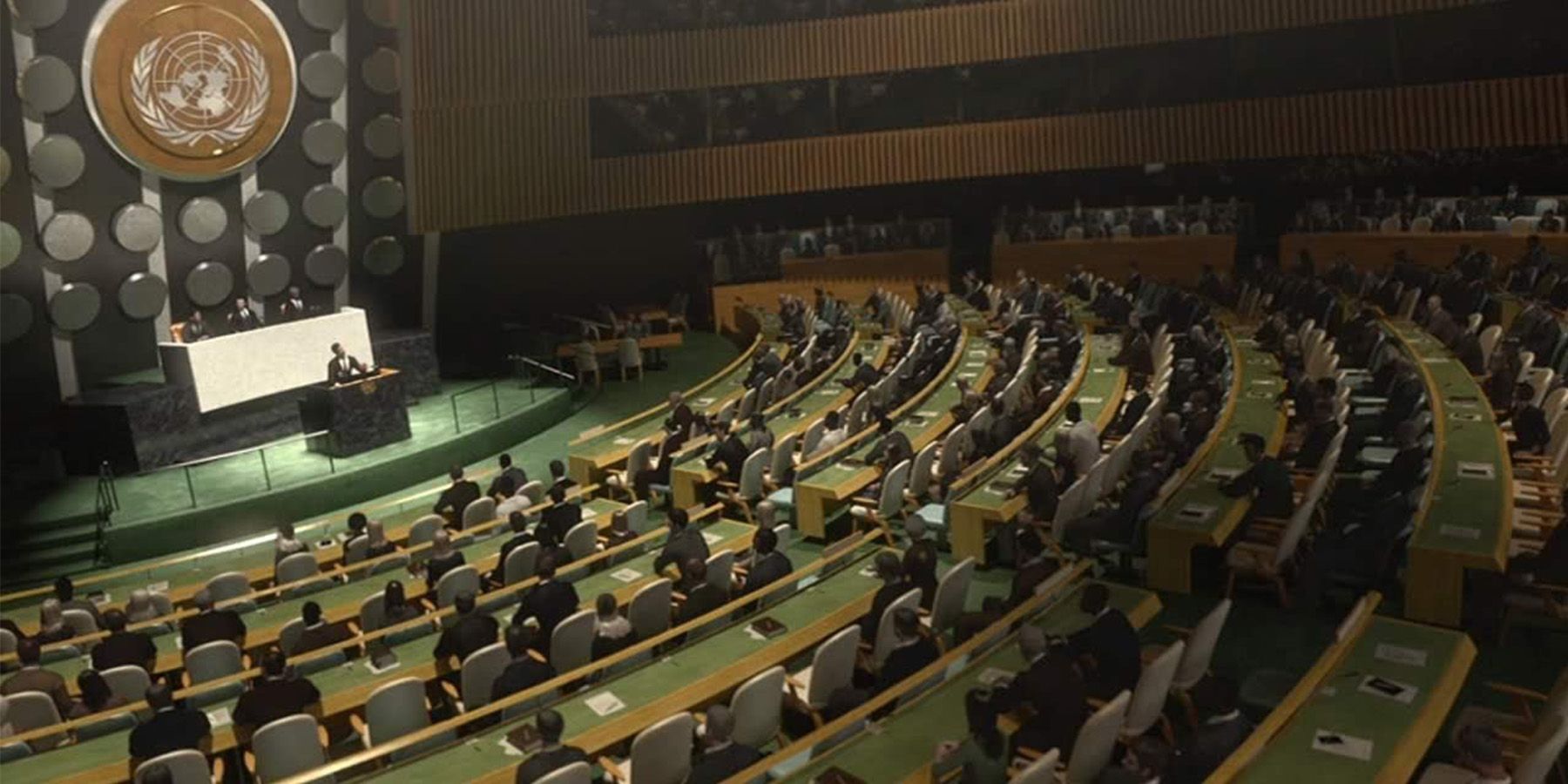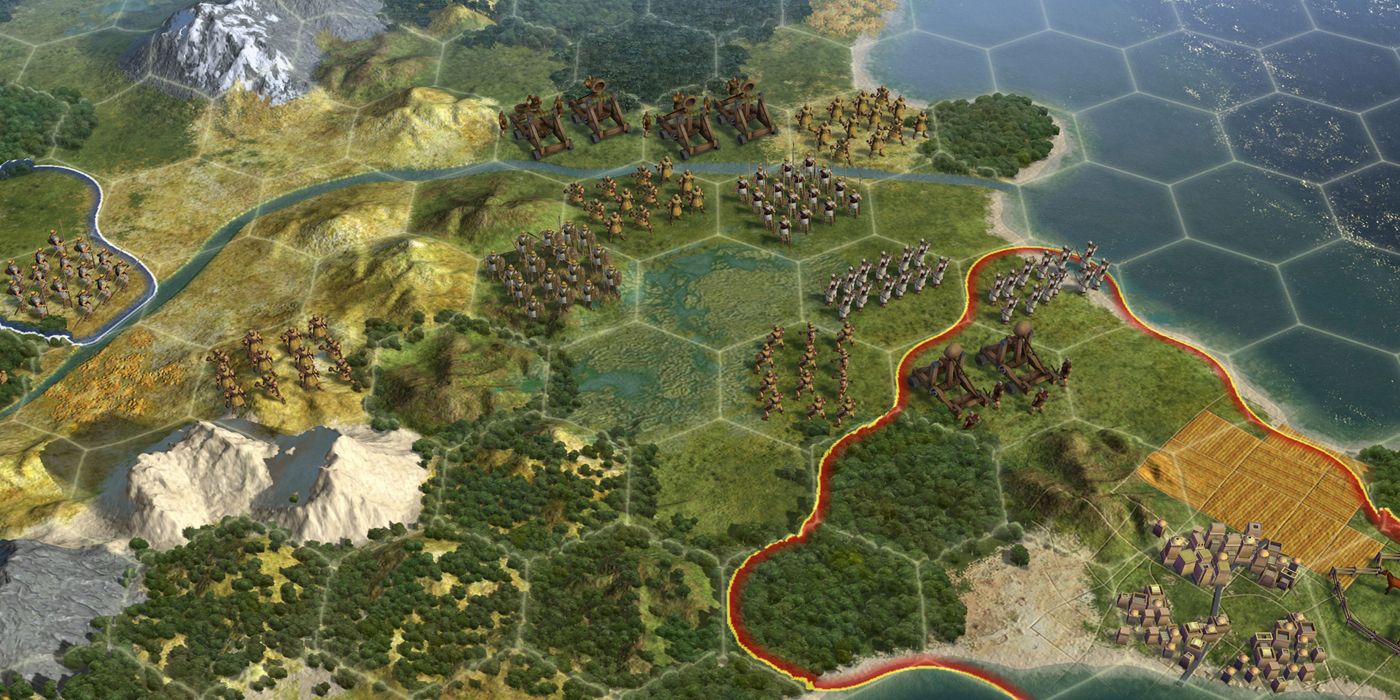While Firaxis tries to innovate with each Sid Meier's Civilization, it also carries over fan favorite features from previous games. One feature that is likely to make the jump to Sid Meier's Civilization 7 is the World Congress. Introduced in Sid Meier's Civilization 5, the World Congress acts as the UN, and its mechanics can really shake up the late game. It is a nice addition to the Sid Meier's Civilization series, and it will hopefully be expanded upon in the next game.
Two mainline Sid Meier's Civilization games have had the World Congress so far. Sid Meier's Civilization 5 introduced the feature in its Brave New World DLC pack, and it brought with it the new Diplomatic Victory type. Sid Meier's Civilization 6 introduced its version of the World Congress in the Gathering Storm DLC, and although it made some nice changes to how the Congress works, its version seems to have lost a bit of what made Civ 5's version special. As Firaxis develops Civ 7 and its World Congress, the studio should look at Civ 5 for inspiration rather than Civ 6.
Civilization 5 Did the World Congress Better Than Civ 6
Civilization 5's World Congress is very different from Civ 6, and some may argue it actually works better. The World Congress appears once a civilization meets every other civilization in the game and researches the Printing Press. That civilization becomes the first host of the Congress, granting them extra delegates and the ability to propose resolutions at every session. If no civilization meets these requirements then the Congress is unavailable until a civilization enters the Industrial Era.
Sid Meier's Civilization 5's World Congress meets every 30 turns to impose new rules and regulations for every civilization. At each meeting, the Congress host and one Congress member can propose to enact a new resolution that can significantly alter aspects of the game, or propose to repeal an existing resolution. Each member spends a couple turns voting on the proposition, and their voting power is decided by the amount of delegates that they have accrued. Players acquire more delegates by becoming the host, by progressing through the tech tree, and by befriending City-States.
Once a Civilization enters the Information Era, or half of the Civilization's reach the Atomic Era, the World Congress is rebranded to the United Nations. The UN will then meet every 20 turns to vote on who will become the World Leader. If a candidate earns enough votes then they will win the Diplomatic Victory. This vote leads to a constant diplomatic battle as the largest civilizations vie for victory.
Sid Meier's Civilization 6 introduced its version of the World Congress with the Gathering Storm DLC expansion, and it significantly changed how the feature worked. Instead of waiting for a civilization to meet all the other civilizations, the World Congress automatically unlocks once the world enters the Medieval Era. Delegates are replaced by diplomatic favor that players will acquire as they play, and players cannot propose their own resolutions at normal sessions, but they can choose what the randomly selected resolution targets.
There is no Congress host, there is no race to be the first one to discover everyone else, and there is not much control over how the World Congress votes. Players just have to vote for something every 30 turns using Civilization's diplomatic favor, and they can also vote when in a special session if they are invited to it. These special sessions can be called if a civilization is hit by natural disasters, or if another civilization is being a bit too aggressive, but only those that are affected by it can attend.
This new World Congress also changes how the Diplomatic Victory works. Instead of voting for the world leader at the UN, the Diplomatic Victory is awarded to anyone who gets 20 diplomatic points. Players can vote to remove diplomatic points from someone, but if they do not keep a watchful eye on the point counter then the victory can easily sneak up on them.
Sid Meier's Civilization 5's World Congress felt like a constant diplomatic battle between the civilizations, while Civ 6's feels like an afterthought. If Firaxis plans to bring this feature to Civ 7 then it needs to look at Civ 5's version rather than Civ 6's. Taking that concept and modernizing it could lead to a fun diplomatic system that helps make the Diplomatic Victory far more engaging.
Sid Meier's Civilization 7 is currently in development.


